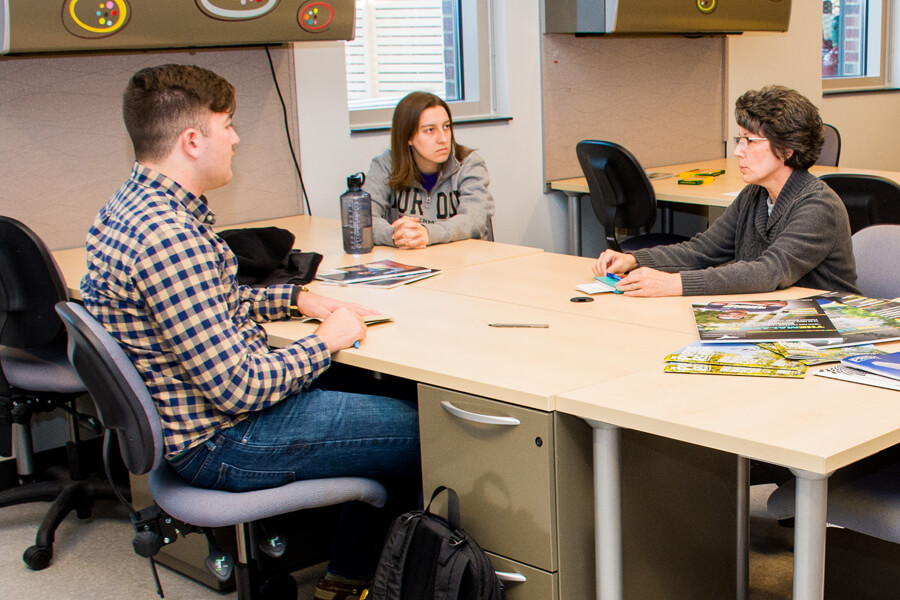ENE's Pilotte presents benefits of intercultural engineering on radio program

Pilotte, associate professor of Engineering Practice and director of Engineering Education Undergraduate degree programs, spoke about how problem-solving in a different culture can help engineering students apply what they’ve learned to their studies.
“Engineering education research has demonstrated that students who are actively engaged in their own learning retain information better and persist in achieving their academic goals,” Pilotte said during her one minute, 45-second recording. “Study abroad programs that comingle technology, professional, and cultural elements are different from more typical tourist-oriented programs.”
Pilotte said the opportunity to be featured came about through Purdue’s Center for Intercultural Learning Mentorship Assessment Research (CILMAR), which, a few years ago, offered instruction and incentive to faculty for participating in its intercultural learning course, with the goal of having educators introduce intercultural frameworks and assessment into their planned excursions and class lessons.
During the intense fieldwork-based course, she integrated the tools offered by CILMAR to help students develop insights around socio-technical aspects of their study abroad experiences, and into their engineering design solutions. In turn, CILMAR staff petitioned Inside Higher Ed to feature Purdue on its radio program, submitting narratives from a wide variety of scholars from across campus. “It was a lovely way to help these novel approaches toward educating engineers for the world of practice be shared with a broader audience,” Pilotte said.
Advised that the petition was accepted and that she would be a Purdue spokeswoman, Pilotte was honored to have the opportunity to draw attention to intercultural engineering. “The cadence of authentic engineering work today operates at a white-hot pace, often embedded in the complexities associated with global supply chains, diverse customer demands, and remote development teams, she said. “Getting the chance to share information on our study abroad programs that expose students to these realities, while also providing intercultural tools, support and professional coaching, helps us communicate how valuable these types of “living labs” can be for our discipline”, Pilotte said. Once students engage in this novel type of global program, they are sure to be better positioned for their professional role as engineer.
“When they have to problem-solve amidst the many differences they encounter, they begin to appreciate how engineering can help them manage uncommon, unpredictable, or even uncontrollable situations,” Pilotte said during the program. “Our data suggests this new type of cross-cultural engineering field work helps students build skills, including curiosity, which are essential for their professional development and long-term career success.”
